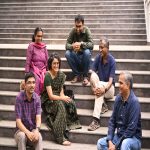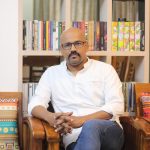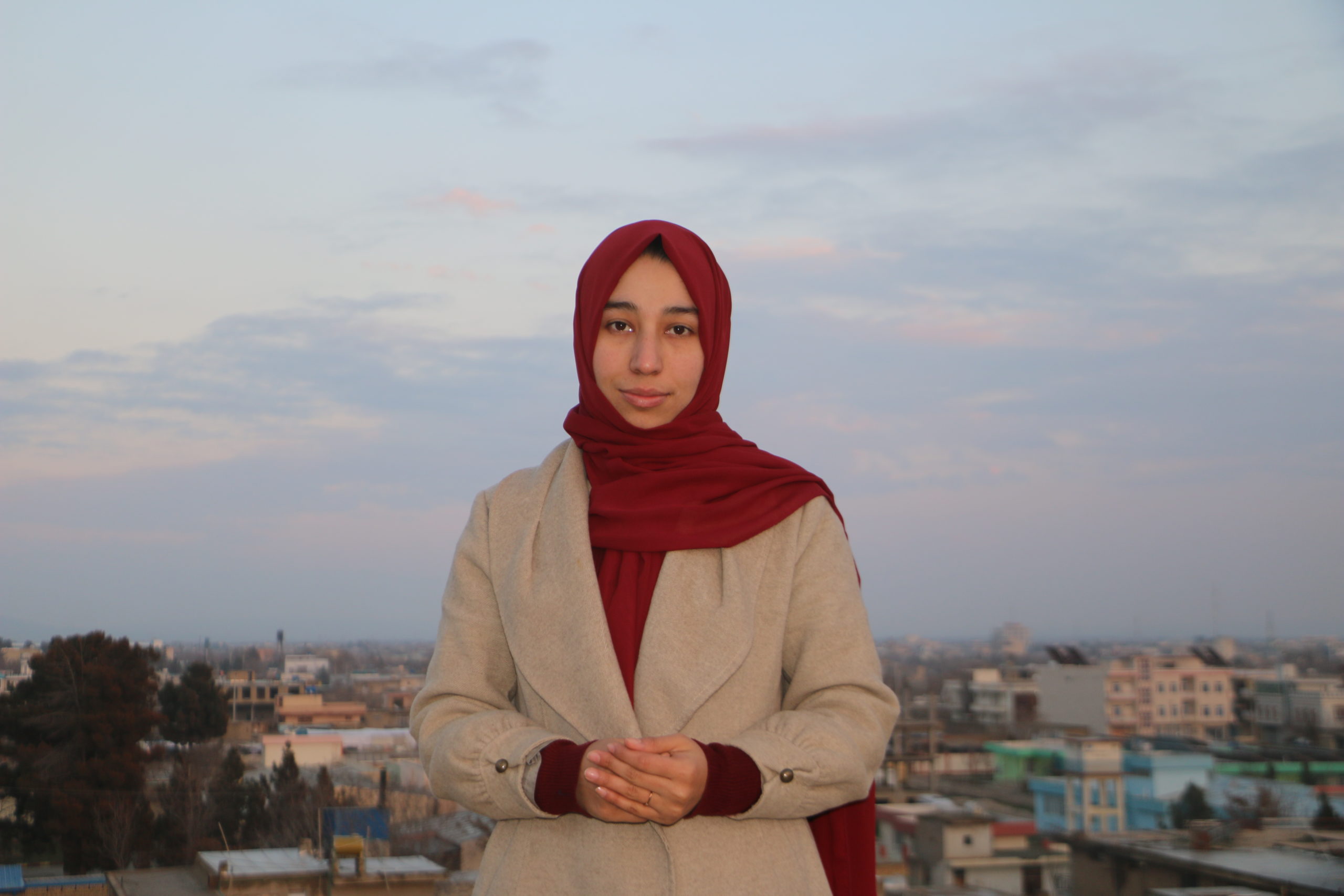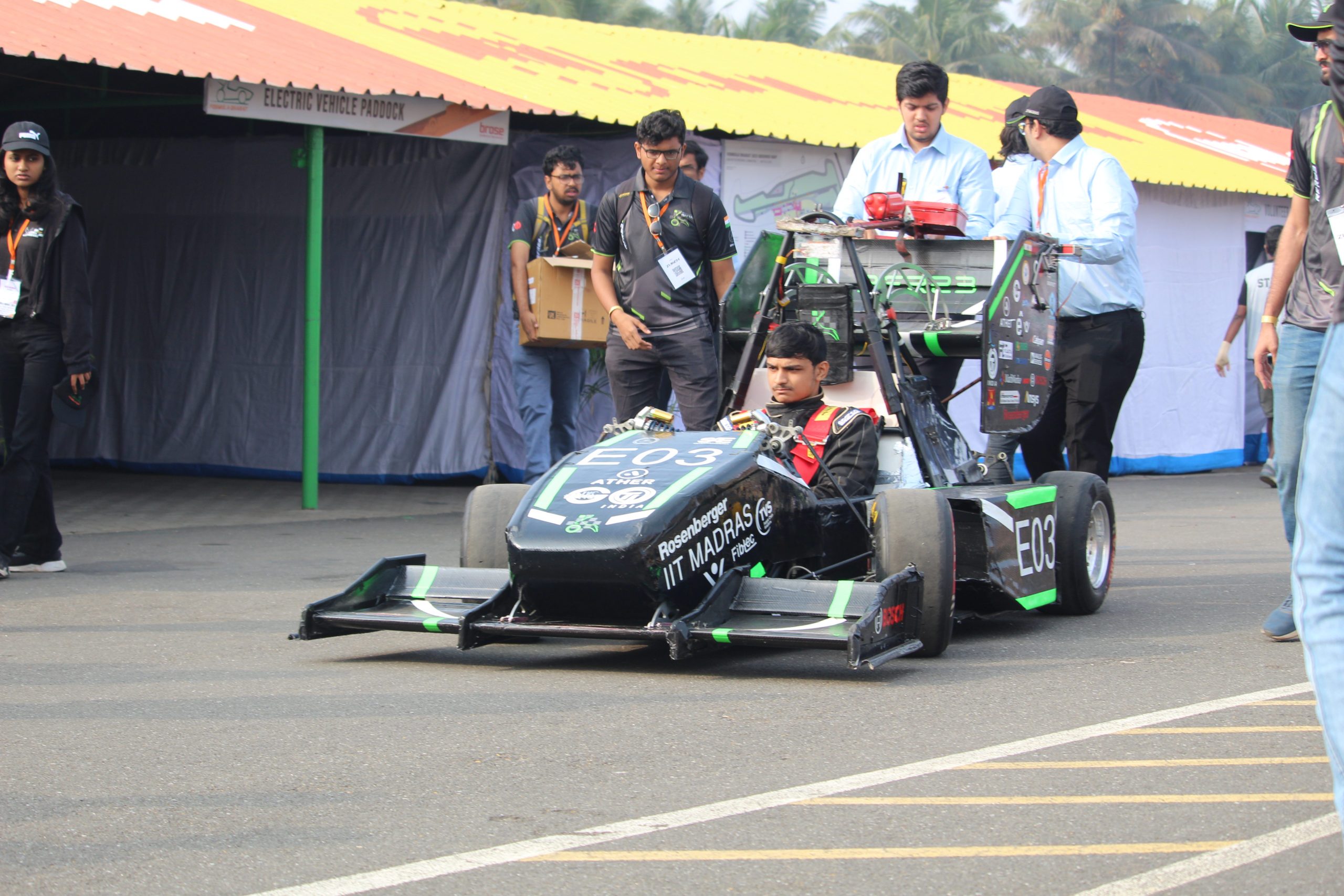An IIT-M student from Afghanistan has come a long way pursuing her passion for Higher Education amidst intense political situations in her country, showing remarkable resilience and courage. This is the story of Behishta Khairuddin
Srivatsan S
When Behishta Khairuddin received the ICCR (Indian Council for Cultural Relations) scholarship to pursue her Master’s degree at any university in India, she couldn’t help but feel optimistic about what’s to come. After all, she had been waiting for it for almost a year. All that effort — including moving from her hometown in Jowzjan to Kabul, the capital city of Afghanistan, to prepare for the TOEFL (Test of English as a Foreign Language) exam to apply for scholarships — was finally paying off.
She read up on the best universities in India, shortlisting five of the IITs and getting an invite from three including IIT Roorkee, Bombay and Madras; she was selected by the latter two. Behishta picked IIT Madras thanks to the NIRF (National Institutional Ranking Framework) rankings: as of 2022, IIT-M topped the NIRF rankings for the fourth time in a row in the overall category, and the seventh consecutive year for the ‘Engineering’ category.
There were personal reasons too. Her eldest sister, Pohanmal Masoda Khairzada, who is currently a faculty with the Chemical Engineering Department at the Jowzjan University, was pursuing her PhD at IIT-M. Impressed by the quality of education and lab facilities, her sister suggested that she give the institute a shot. Behishta hasn’t travelled anywhere alone, let alone going to another country. Luckily, she had Khairzada for company if she got a callback from IIT-M, which she did eventually. The sisters thought they could stay together on campus.
As Behishta’s personal goals were coming to fruition, her country was on the brink of a larger political development: the Taliban, after being out of power for two decades by a US-led military intervention, was on rapid rise, taking control of provinces one after the other. The Taliban took control of Afghanistan in August 2021; IIT-M’s odd semester began around the same time. There was uncertainty and chaos.

The situation was grim and emotions ran high; thousands of people tried fleeing the country by whatever means they could. And those who stayed back did not have it easy either. For Behishta, it was a rude shock to discover that she lost out on the ICCR scholarship, after the Indian Government invalidated visas for Afghan nationals as a result of the Taliban suspending international flights since its takeover. The ICCR, which gave scholarships to over 650 Afghan students for the 2021-2022 academic year, requested the Indian Government to find a way to bring these students to India. Hope was not lost.
The IIT-M reached out to Behishta through its Office of Global Engagement, which is responsible for any international collaboration-relation that happens within and outside the institution. A scholarship was worked out and a month later, as her classmates turned up for classes, Behishta joined them — albeit remotely, from home, in Afghanistan. She is currently doing her M.Tech in Chemical Engineering.
Her sister, Khairzada, who managed to complete the first semester of her PhD on campus in 2020, was left with no other option but to return to her country in the wake of the pandemic. Since then, she hasn’t been able to come back. She has completed her coursework, but the research still remains a question as the World Bank, which was supporting her through funding, had put a pause.
Home is where the heart is
Behishta’s strength comes from her largely educated family: her mother is a Doctor who works in a clinic supported by an NGO, and her father, a Social Science graduate, also works in an NGO. She has four sisters and two brothers, all of whom are either pursuing higher studies or are working professionals. Her second eldest sister is a graduate in law; third eldest sister is an engineering graduate; younger sister is currently studying medicine and younger brother is pursuing engineering. They all live together as one family. 
When Behishta told her parents that she got an admission with a scholarship, they did not know much about IIT-M or NIRF rankings. They just had one thing to say: “We are proud of you. If you need anything, we are here for you.”
Behishta was lagging a month behind the rest when she started the course. Doing a Master’s degree remotely comes with its own share of challenges. “The Internet quality was not good in the initial few months and my camera would freeze invariably,” recalls Behishta, over a video call from Afghanistan. “When the live sessions were over, I would go through recordings and try to understand the parts I may have missed,” she adds.
This was the routine she followed for about two semesters. She slept scarcely for about four-five hours a day; when she did not have classes, she was on YouTube searching for videos related to her course, apart from referring to research papers and books.

There is a stark difference in the quality of education between the two countries, feels Behishta. “When I compare my two-year programme [at IIT-M] with my B.Tech degree, it’s totally different from the education I got here. It felt like I was learning something of high standard. I want to bring that high standard to my country,” she says.
Sitting in the room armed with a laptop, a smartphone and a couple of books, Behishta sailed through two semesters with a CGPA (Cumulative Grade Point Average) of 8.35 out of 10. She had to stick to the process for one more year.
Just when the third semester was about to begin, the Taliban slapped an indefinite ban on university education for women. Scores of women and activists took to the streets to protest the ban. There was uncertainty and chaos. Yet again. According to a report in the Time magazine, before the Taliban came to power, “over 20,000 students at Kabul University, the country’s oldest university, were female.”
Almost there
At home, it took a toll on Behishta. “It’s [political events] not something we would like to talk about. But at the same time, it’s something we don’t want to hide either,” she says, adding, “Things [Taliban’s ban] made it worse for us. There is still a lot of uncertainty [about the ban and when it will be lifted]. Hopefully things might change in spring.” 
Taliban’s takeover resulted in bad economic conditions at home. “Three of my sisters who were working in NGOs were left with no salary…only my parents were working and were getting paid.”
According to several media reports, scores of women reportedly have taken remote education, which seems to be the only solution to women’s education in Afghanistan. “As far as I know, lots of students continued their studies online but there are so many who had to discontinue their studies because of visa issues,” she says, adding that her CGPA for three semesters stands at 8.83.
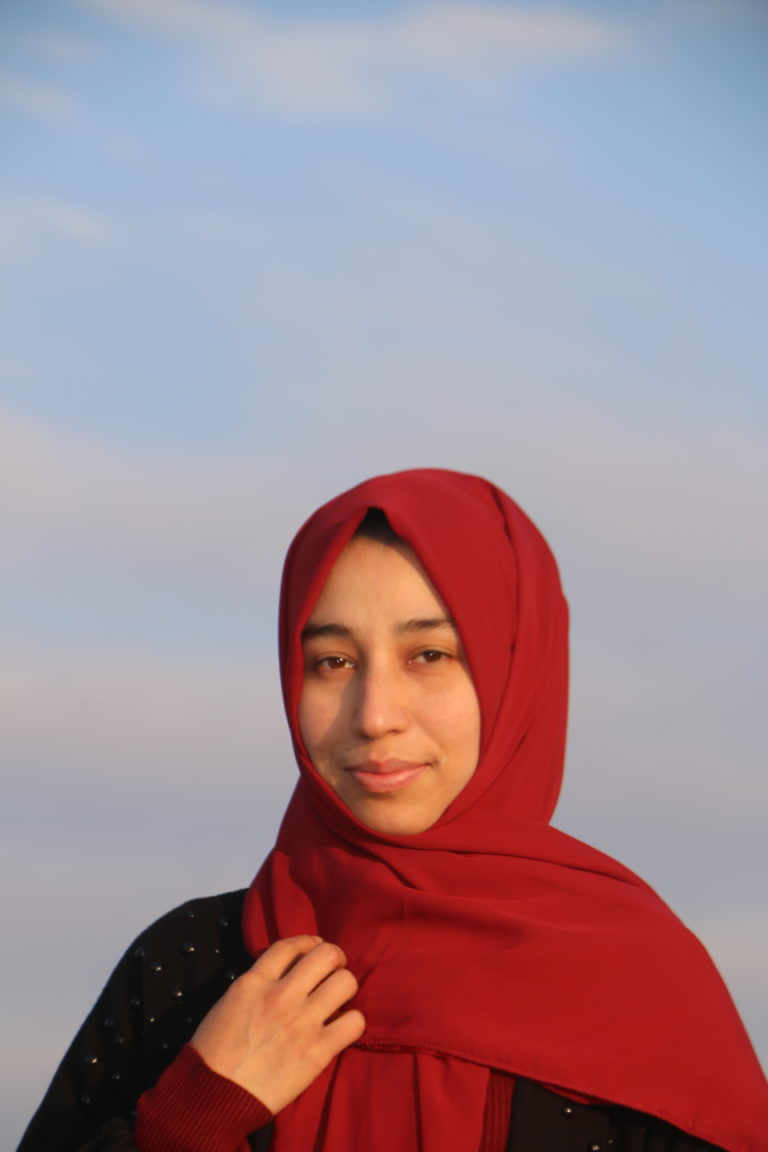
Behishta says that being physically present on campus might have made it easier for her. But she has no regrets — “I learnt a lot from this experience,” she smiles. Anything she missed the most? “Oh yes, the laboratories.”
For her final year project, Behishta selected emulsion fuels. It was an experimental project, which she had to change owing to lack of resources. She switched to ‘water absorption by food grains using image processing tools’ at the suggestion of Prof Basavaraja Madivala Gurappa (Basa). “We discussed this project, which can be done remotely with the availability of image processing tools. The idea is: you take these food grains, soak them in water, and observe and study the grains that can be captured easily on a phone or camera. She can do some image analysis to quantify it. For instance, she can measure the length and diameter, and how they change with time,” he adds.
Behishta, in fact, even set up a small lab at home by borrowing an oven from one of her sisters, a weighing machine from a jewellery shop, some bakery items, and a few lab materials from her previous university.
Prof Basa speaks highly of her commitment. “For someone who is in a situation like this, it is very easy to lose focus. It is very easy to say, “Hey, look, there is only so much happening, so why should I even care?” But I think she’s very brave. She is able to take up the challenge,” he says.
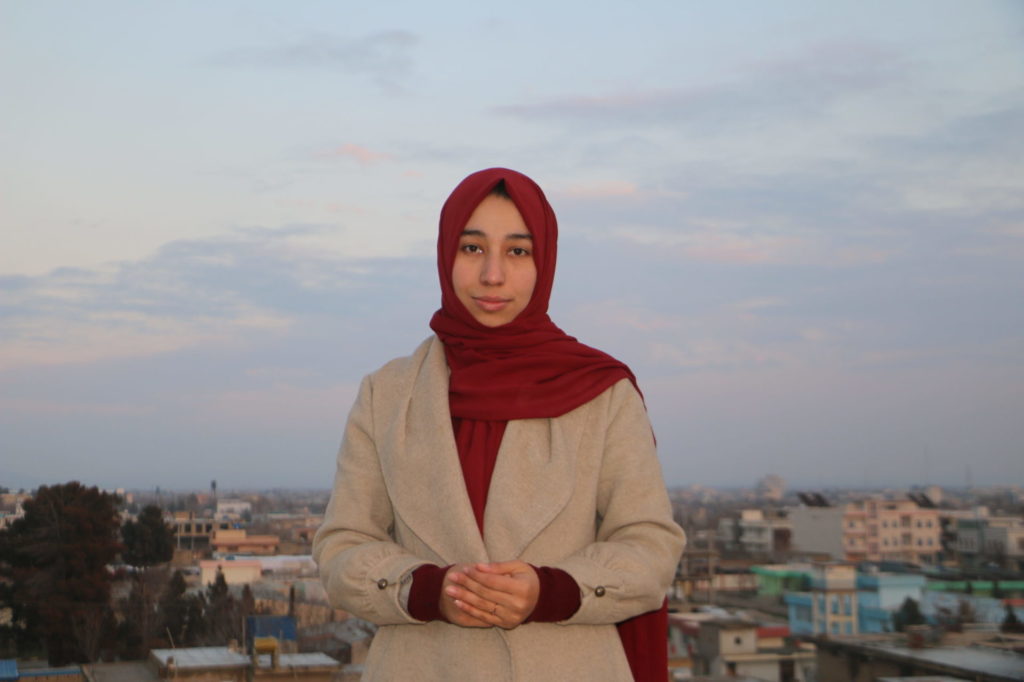
Behishta will complete her course at the end of July. She will probably be among the first women from Afghanistan to earn a degree through remote education, which currently seems to be the only option for Afghan women ever since the Taliban put an indefinite ban on higher education. Getting the degree wearing graduation gowns and hats during the convocation at IIT-M is a matter of great pride and prestige for outgoing students every year. This has been the sentiment in the institution ever since its establishment in 1959, except in 2020, when, for the first time in the history of IIT-M, the convocation went online due to the raging pandemic, and the degrees and awards were handed over to students virtually.
This year marks the 60th Convocation Day. “Of course, I would like to be there,” says Behishta excitedly. She says she would like to do a PhD under her Macromolecules course instructor, Prof Susy Varughese, if she gets a visa to India. “In my country, getting a government job is quite difficult and takes a lot of time. But what I saw at IIT-M is, during the third semester itself students were getting offers from companies. It means that talent has value. That if you are talented in India, you will get a job. But here, it’s not like that.”
Behishta’s journey the last two years pursuing her love for higher education amidst the intense political situation in Afghanistan, despite the public threat issued by the Taliban for women’s education, displays courage and at best, offers a glimmer of hope — for a better tomorrow.
Talented women, like herself, are the need of the hour to rebuild the fractured education system of Afghanistan. “Because India doesn’t need me; it has lots of knowledgeable people. My country needs me. If I can serve my country, then that’s how I want to put my talent to use [and to solve industry problems].”
She catches a moment to correct that statement — and sentiment: “There are lots of people who can die for their country but I want them who live for their country. This is how we can serve our country and build it. I want people to live. I want to live for my country.”
